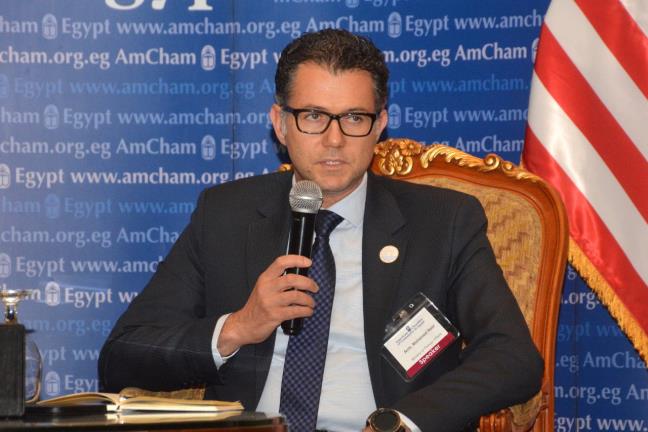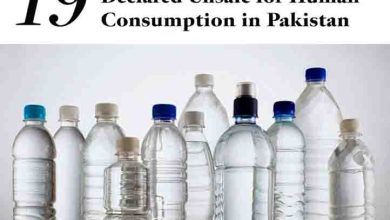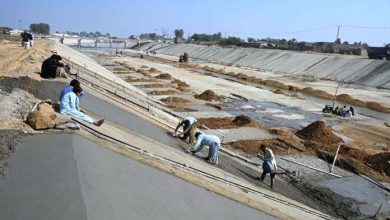#COP27 an Opportunity for Africa, Global South to Put Justice Back at the Heart of Climate Action: Egyptian Minister
COP27 an Opportunity for Africa, Global South to Put Justice Back at the Heart of Climate Action: Egyptian Minister
Cairo: The COP27 Presidency is an opportunity for Egypt, as an opportunity for Africa and the Global South to put justice and fairness back at the heart of global climate action, Egyptian Ambassador Mohamed Nasr, the country’s chief climate negotiator, told Euro News as COP27, the biggest annual meeting of world leaders attempting to shift the attentio0n on climate change.

Amb. Nasr has plenty of experience in this arena. A diplomat for the Egyptian Ministry of Foreign Affairs, he has also been a lead negotiator on finance for African Group of Climate Change Negotiators (AGN) since 2009.
Responding to a question on COP27 Presidency for Egypt, ambassador said “I do not see the COP27 Presidency so much as an opportunity for Egypt, as an opportunity for Africa and the Global South to put justice and fairness back at the heart of global climate action”.
He further added by saying “As the Presidency, we are here to serve and facilitate discussions between the UNFCCC Member States, rather than to represent any specific interests – we are doing all we can to ensure the concerns of developing countries and the Global South are heard, and most importantly responded to with the urgency they demand”.
“We aim to restore the ‘grand bargain’ at the centre of international climate talks”, he noted.
He further added, “in particular, we aim to restore the ‘grand bargain’ at the centre of international climate talks – whereby developing countries agree to increase their efforts to tackle a crisis for which they are not responsible, in return for much more financial support from those who have historically benefited more from fossil fuels”.
“This means more support and technology transfer for the green transition, more support for adaptation to the impacts already taking place, and more support for developing countries to pursue their sustainable development goals, including access to energy for all”, he emphasized.
He also said “This is also an opportunity for the whole world to look back at the events of the past few years, and to acknowledge that we have an increasingly urgent common interest in tackling this climate crisis together – but also to respect that our situations and capacity are quite different. So let those with the most resources both increase and implement their own commitments and provide more support to those of us with fewer resources, so we can build a more sustainable world together”.
Responding to question how the Presidency impact Egypt’s climate efforts, ambassador said, “I would separate the work of the COP Presidency from the climate policy of Egypt itself. As COP President, Egypt will bring countries together around common interests, to create a more conducive atmosphere to tackle the major challenges we face as a global community”.
He stated by adding “specifically, if we can successfully encourage more affordable finance for the green transition, and for adaptation, and if we can foster greater learning and technology transfer between countries, all of us – including in Egypt, but throughout Africa and the Global South – will be in a better position to raise our ambitions and, essentially, better put our national climate transition plans into practice”.
Replying to query about the main issues Egypt is hoping are addressed at COP27, he said “There are many challenges before us at COP27, but I would focus on two main points”. He further added “First, all countries must both increase their ambition and, crucially, move to implementation – and to ensure there is no backsliding in our commitments to accelerate the green transition. This includes both cutting and removing emissions faster, and creating a transformative adaptation agenda to prepare and protect us from the climate impacts we can no longer avoid”.
“Second, we must find the means to pay for this in a manner that is just and equitable. That means splitting the bill fairly, where those who have emitted the most pay the bulk of the costs”, he noted.
In 2009, developed countries promised to provide $100bn a year in climate finance by 2020 – yet still haven’t done so. I would add that this is a floor rather than a ceiling, and falls far short of what is needed, he noted.
This should not be a question of competition between nations – we are all in this together, he added.
We must think more creatively and about how to provide these funds, and sooner rather than later. This should not be a question of competition between nations – we are all in this together. An investment in climate action anywhere benefits people everywhere, he stated.
Countries must also honour the Glasgow pledge to double adaptation finance by 2025. And we must confront the issue of loss and damage suffered by the world’s most vulnerable people. Too long have we failed to take this issue seriously; the moment for action has now arrived, he added.
Importantly, all these elements must be tackled. Higher ambition, faster implementation, and the necessary fair financing must all be addressed together if we are to succeed, he stated.
Ambassador emphasized by stating that “The COP27 presidency is committed to enabling an inclusive COP as vibrant as any other and we have set out how we will enable views from around the world to be represented at Sharm el-Sheikh. For this, we have worked with our sisters and brothers in Africa and also with others back home to allow for enhanced participation of African and Egyptian NGOs, which lead to granting single time accreditation to more than 40 NGOs, and an ever-increasing number of passes for the NGOs”.
Egypt’s legacy for diplomacy means that we understand the importance of partnership and collaboration amongst all stakeholders to deliver the action we need now, he underlined.
People will be able to make their voices heard, showcase solutions, and engage freely in this critical global conversation, he concluded.
#ClimateChange
By M.A







